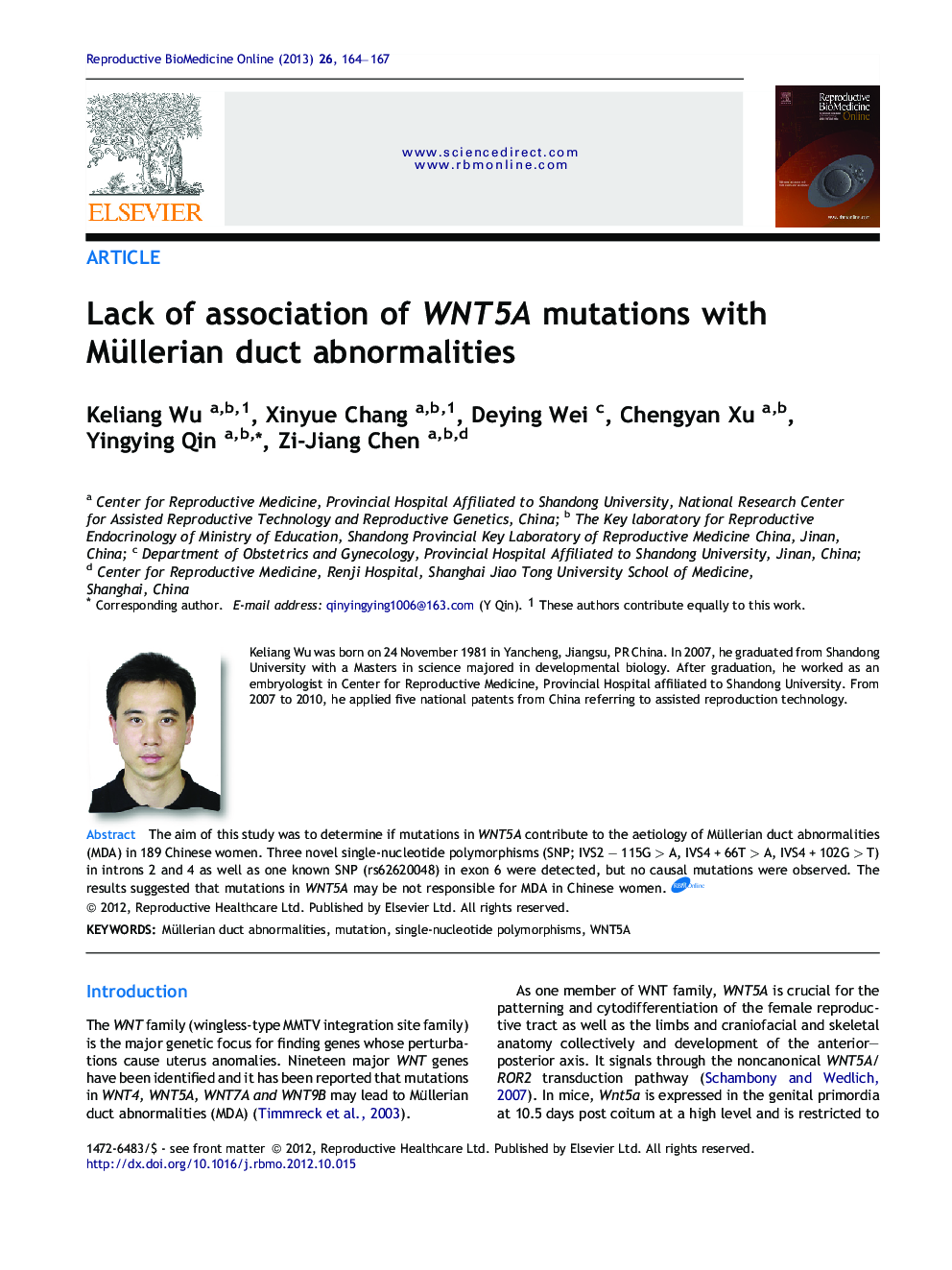| Article ID | Journal | Published Year | Pages | File Type |
|---|---|---|---|---|
| 3970354 | Reproductive BioMedicine Online | 2013 | 4 Pages |
The aim of this study was to determine if mutations in WNT5A contribute to the aetiology of Müllerian duct abnormalities (MDA) in 189 Chinese women. Three novel single-nucleotide polymorphisms (SNP; IVS2 − 115G > A, IVS4 + 66T > A, IVS4 + 102G > T) in introns 2 and 4 as well as one known SNP (rs62620048) in exon 6 were detected, but no causal mutations were observed. The results suggested that mutations in WNT5A may be not responsible for MDA in Chinese women.Genetic factors are considered to be one of the major causes of Müllerian duct abnormalities (MDA). Previous studies have shown that the WNT5A gene is crucial for the patterning and cytodifferentiation of the female reproductive tract. The study included 189 well-characterized patients with MDA who were screened for variants of WNT5A for the first time. Three novel single-nucleotide polymorphisms (IVS2 − 115G > A, IVS4 + 66T > A, IVS4 + 102G > T) in introns 2 and 4 as well as one known single-nucleotide polymorphism (rs62620048) in exon 6 were detected, but no causal mutations were observed.
Graphical abstractGenetic factors are considered to be one of the major causes of Müllerian duct abnormalities (MDA). Previous studies have shown that the WNT5A gene is crucial for the patterning and cytodifferentiation of the female reproductive tract. The study included 189 well-characterized patients with MDA who were screened for variants of WNT5A for the first time. Three novel single-nucleotide polymorphisms (IVS2 − 115G > A, IVS4 + 66T > A, IVS4 + 102G > T) in introns 2 and 4 as well as one known single-nucleotide polymorphism (rs62620048) in exon 6 were detected, but no causal mutations were observed.
